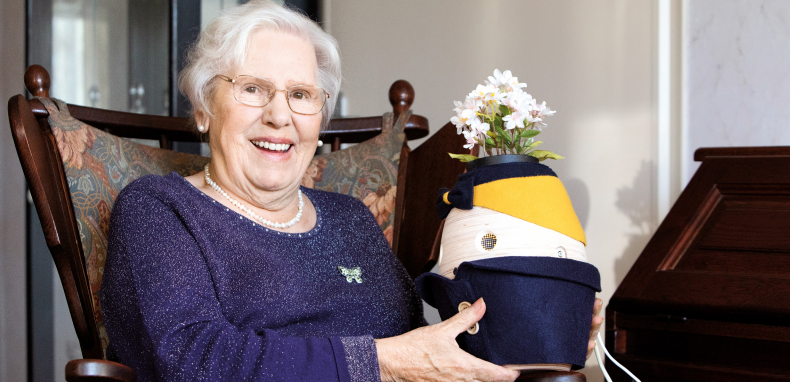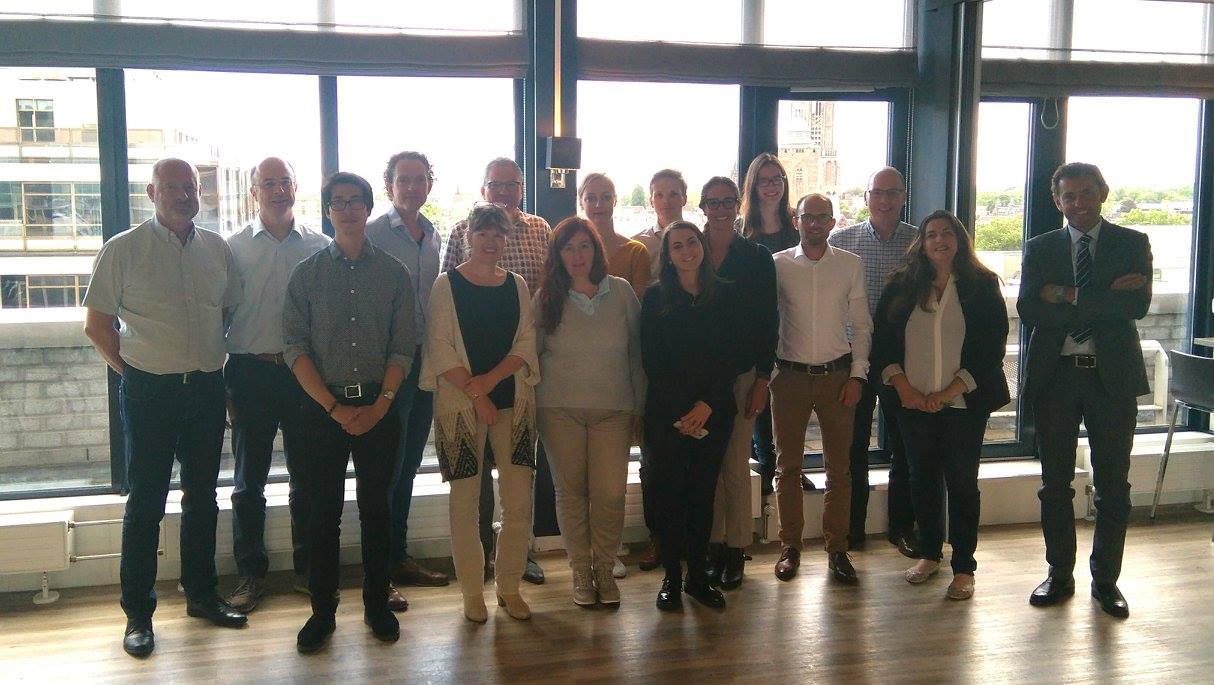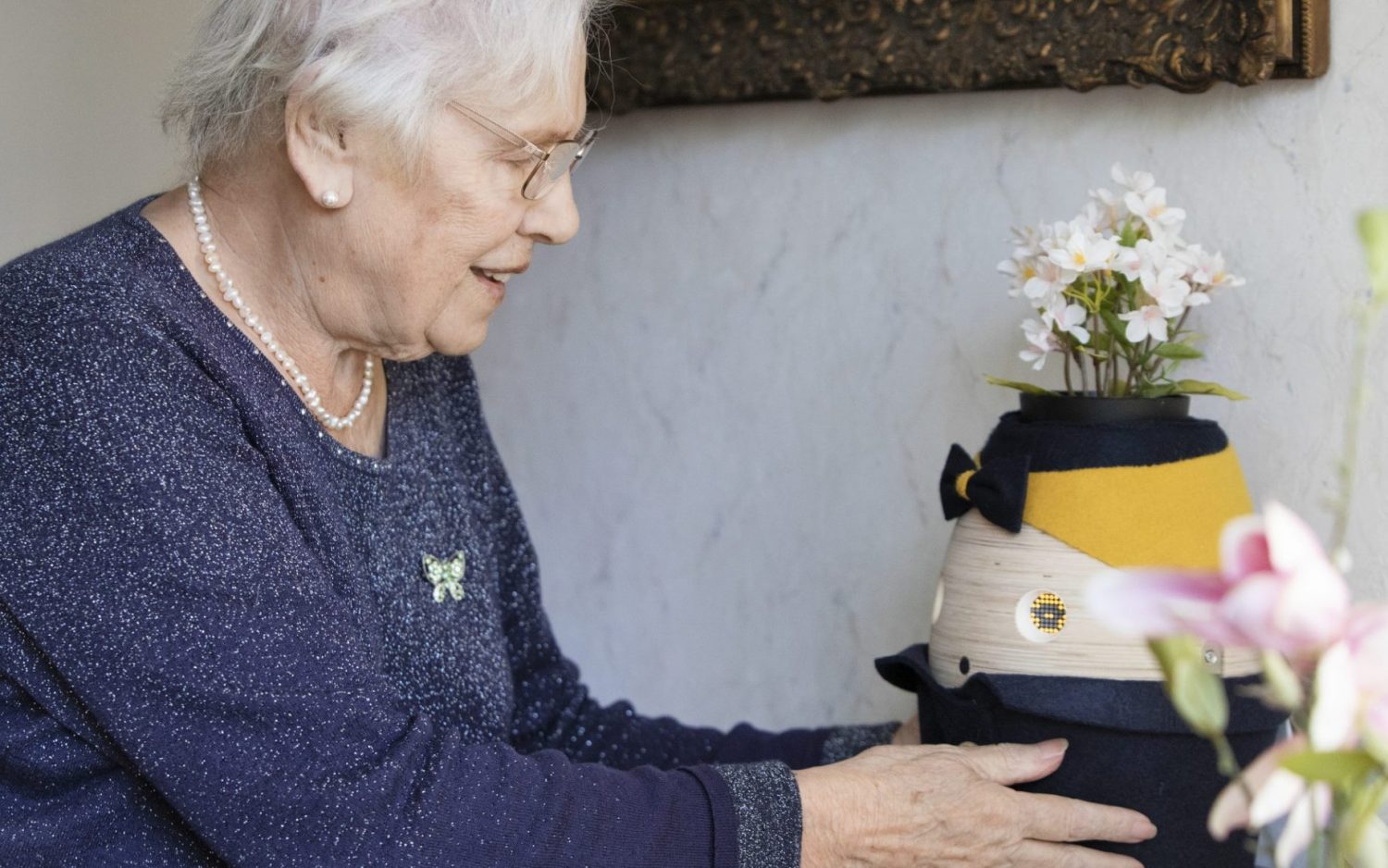Project of the month: eWARE
Alleviating the burden for informal caregivers
Many informal caregivers frequently experience high levels of stress, fatigue, social withdrawal, and sleeplessness. This month’s highlighted AAL project eWARE provides a device that monitors habits and activities of people with dementia, and in result reduces caregiver’s distress and extends the period that he or she can sustain the care.
It is the families that most often have the main role in taking care of their ill loved ones, but due to the nature and character of their duties, the physical and also emotional toll it takes, tends to be underreported.
According to a study by Eurocarers (2017), informal carers take up a large part of long-term care for older adults even in countries with a well-developed care system in Europe, and it is estimated to be at least twice as big as the formal care workforce. This is particularly relevant in the context of ageing societies, where there is an increasing prevalence of chronic diseases and frailty.
About the project:
eWARE adds social robotics to lifestyle monitoring in order to support bi-directional communication in a form of a small robot that has the ability to interact and monitor the person at home.
The lifestyle monitoring sensors add context awareness to the social robot, which provides an interface between the person with dementia and the (in)formal carer. In turn, the informal carer can be reassured by the monitoring in the house and the communication in such a way that he/she can give the person with dementia more space to life.

Photo : End-User with the social robot
Lifestyle monitoring provides insight into the short- and long-term life patterns of a person with dementia (e.g. restlessness during the night, excessive toilet us, prolonged inactivity in the kitchen), resulting in better knowledge of the person’s specific needs to adjust the care accordingly, for example by, early warning for crisis situations provided.
Moreover, the communication possibilities will trigger the person with dementia to become active without the necessary involvement of communication with others and enable people with dementia to stay in contact with others.
How does it work?
eWARE integrates two products which are already existing and, on the market, namely, the lifestyle monitoring of Sensara (motion sensors and open/close sensors) and the social robotic technology of Tinybots.
Consequently, the social robot can reduce stress of the informal carers and the patient community, enhance quality of life of the informal carer and person with dementia and also support communication and information between formal and informal careers.

Photo: the team behind eWARE
Testing in several countries
The eWARE system is being tested in 4 countries with 7 systems in the Netherlands, 6 systems in Italy and 5 systems each in Switzerland and Norway. The pilots are still under development, and the consortium is working in the data analysis at this moment. The feedback so far has been reported as very positive, the end-users at home are feeling safer, and the caregivers reduce their stress levels, because of the remote monitoring, the goal-setting and reminders through the robot.
Moreover, in the current circumstances of the ongoing pandemics, eWARE has been really particularly successful, because of the possibility to access the user in the home environment (inside/outside) and monitor the activity, which has been fundamental in helping the caregivers particularly considering the social distancing rules across Europe.


